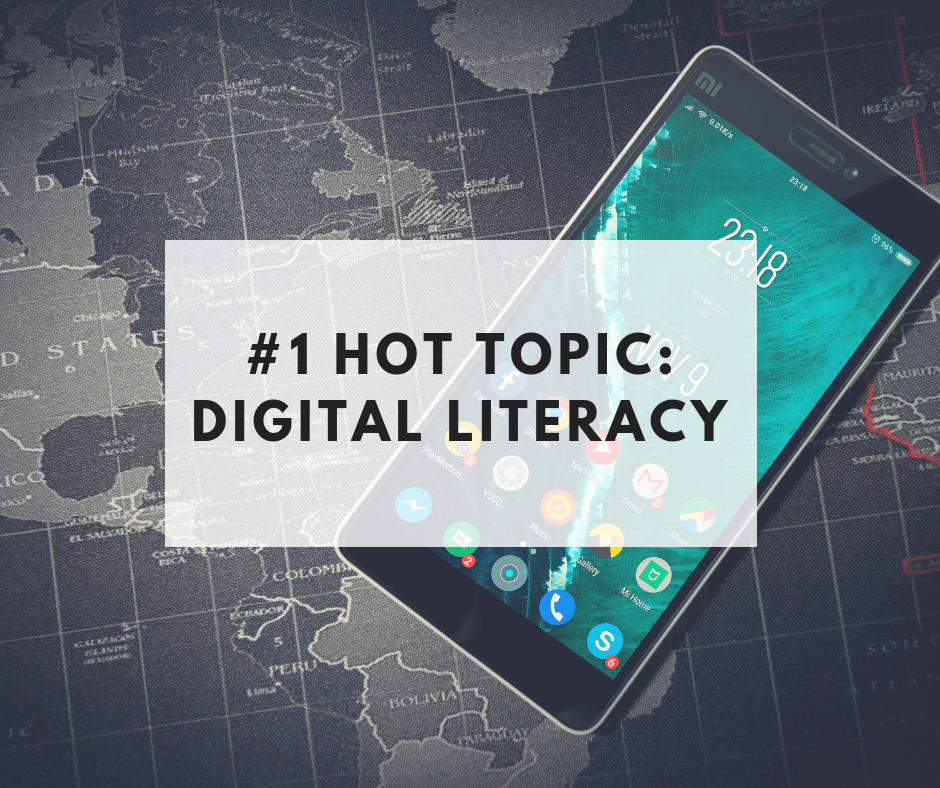Our last three quarterly Chicago Literacy Alliance confabs have explored issues highlighted in the International Literacy Association (ILA) “What’s hot in literacy 2018 Report”, a global survey of nearly 2,100 respondents from 91 countries and territories. While many of the findings are related to children/early literacy, there’s overlap with adult literacy issues and hot topics. For example, digital literacy is ranked #1 among all hot topics.
However, it’s important to note that digital literacy ranks #13 in importance. Interestingly, the report’s authors note:
“Respondents shared that they are concerned that digital-everything is being turned to as a quick fix. And some expressed strong feelings that a focus on digital literacy—especially at very young ages—is crowding out a focus on foundational literacy skills.”
This appreciation of the intersection of foundational literacy skills and digital literacy is echoed in adult education, as well. For example, I’m part of an Open Door Collective session at COABE with Gwenn Weaver, Jen Vanek, and Stephen Reder, titled “At the Digital Crossroads: The Intersection of Adult Literacy and Digital Inclusion.” As noted in our COABE session overview:
“ … this session … will introduce case studies, examples, research results, and other information to help participants learn about the intersection of adult literacy and digital inclusion and consider potential strategies for practical application. Digital technology has become the driving force for many aspects of life, including education/learning, financial management, e-government/public services, working, shopping, health & wellness, transportation & travel, entertainment, creativity, etc. Consequently, adult learners need more than just basic skills and conventional computer skills training to engage with life in the 21st century. Digital inclusion is a concept that allows people to embrace the digital world to the fullest.’
